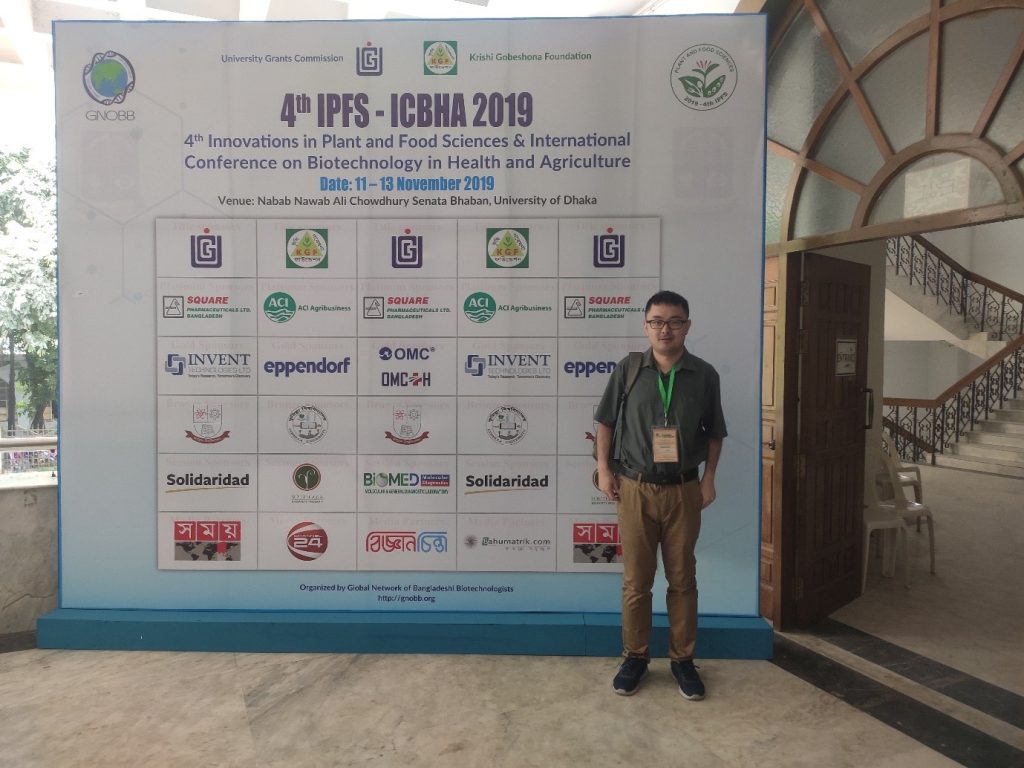
In this spotlight we hear from fellow Jiamiao Hu, associate professor from Fujian Agriculture and Forestry University, P.R. China, to find out how impactful his time at the University was and how he has progressed since.
“I am very honoured to be hosted as a GCRF fellow by Leicester Institute for Advanced Studies in 2019. During my three-month stay at the University of Leicester, I had the opportunity to closely collaborate with Prof Bee K Tan (College of Life Sciences) and Dr Clare Gillies (Leicester General Hospital). Our collaboration centered around a systematic review with meta-analysis, aiming to quantify the relationship between blood lipid levels and blood sugar levels for pregnant women during their pregnancies.
“The findings of our study revealed that elevated triglyceride levels may be predictive of the development of gestational diabetes. This discovery suggests that women with abnormal blood lipid levels should be attentive to their risk of developing gestational diabetes during pregnancy. The findings were published in a peer-reviewed journal eclinicalmedicine with IF=17.033.
“My visit to Leicester in the summer of 2019 greatly strengthened my collaboration with Prof Bee K Tan. In fact, Prof Bee was subsequently invited to pay a four-day visit as a special guest to my institute in China. The reciprocal visits greatly deepened our understanding towards each other’s research areas and laid a solid foundation for our follow-up collaboration.
“Despite the challenges posed by the COVID-19 pandemic, we made great effort to continue our collaboration. During the pandemic, we successfully secured a CSC funding to support a ten-month visit to University of Leicester again. Furthermore, immediately after COVID-19 travel restrictions were lifted, we were able to bring this visit to fruition.
“Currently, I am working with Prof Bee K Tan as an Honorary Visiting Fellow on research that explores the impact of high blood pressure on pregnant women. We firmly believe that our ongoing collaboration on the topic of pregnancy-related metabolic syndromes will make a valuable contribution to more comprehensive understanding towards the pregnant-related metabolic disorders. The findings may have the potential to improve antenatal care guidance and benefit women at higher risk of metabolic disorders during pregnancy.
“Reflecting on my story, I am deeply grateful for the outcomes from these collaborative projects, as they have significantly influenced my career trajectory. I have to say these achievements all began with that thrilling opportunity provided by LIAS in 2019.
“More importantly, LIAS not only provides opportunities for fellows to work with a single supervisor, but also organises numerous networking events during their stay. These events have facilitated extensive collaborations between scholars from different disciplines and universities. In summary, based on my experience, I can confidently say that LIAS acts as an enzyme, which greatly catalyses collaborations between researchers and inspiring novel ideas.
“Currently, I continue working closely with Prof Shaoling Lin as a team with 12 postgraduate students at Fujian Agriculture and Forestry University. Our research interests mainly focus on innovative food technologies. Specifically, our particular areas of interest revolve around the exploration of novel metabolic-boosting foods with benefits for expectant mothers, as well as development of novel non-thermal sterilisation technology for food processing. Through the pursuit of these research activities, we hope our work will contribute to the promotion of healthier eating, optimise food preservation and consequently mitigate food wastage. We anticipate more opportunities to work with other scholars from related disciplines. We believe your expertise and insights would be invaluable in advancing our research.
“In conclusion, I would like to express my heartfelt gratitude to LIAS, not only for their help on my research and career development, but also for numerous opportunities for scholars they created. I wish LIAS continued success in all its endeavours.”
